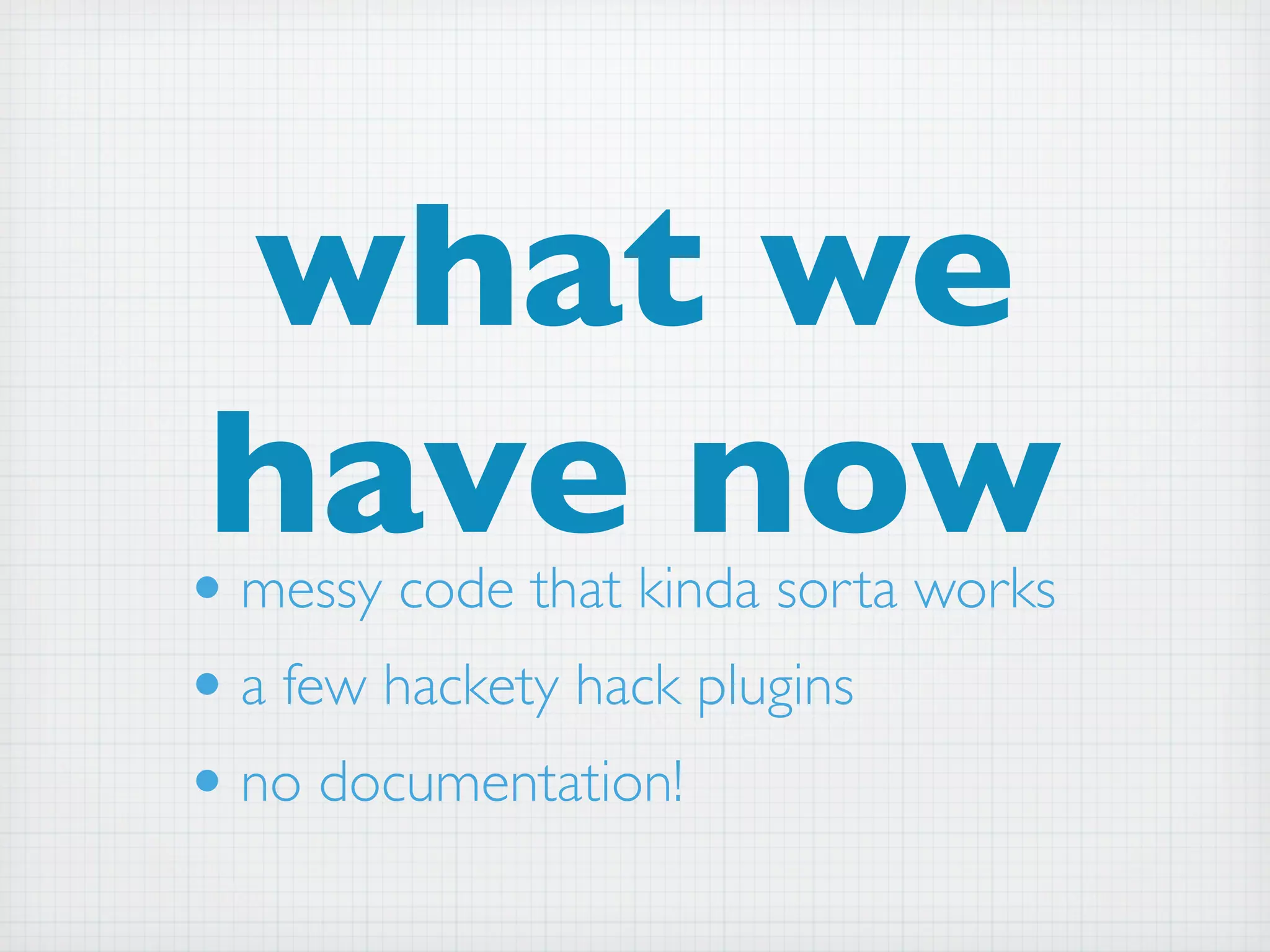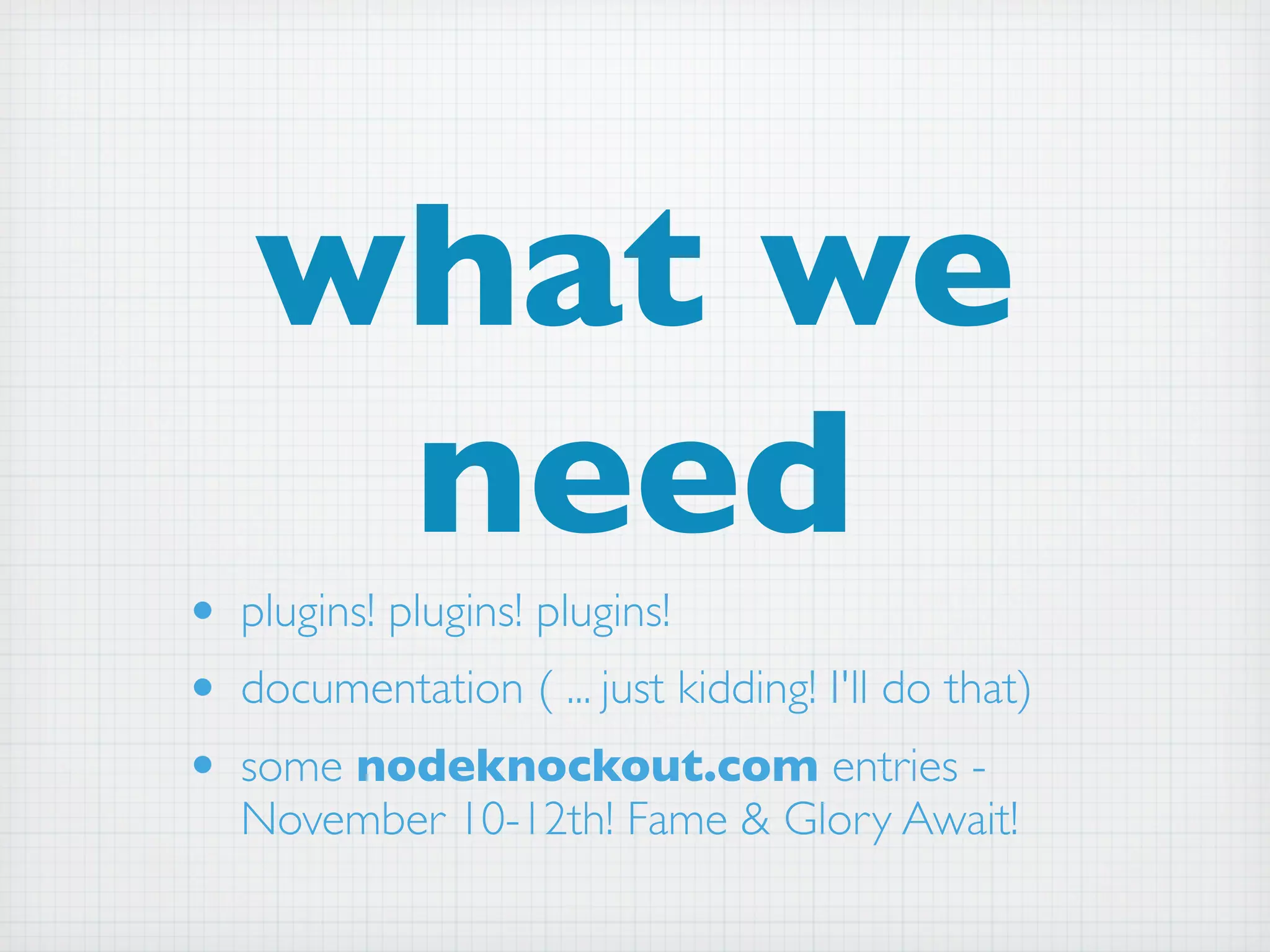The document discusses starting a Node.js community project called Seneca. Seneca is described as a toolkit that allows building a startup minimum viable product in a weekend. It encourages participants to sign up via Twitter or email and contribute code to the GitHub repository. The document provides an overview of Node.js modules and how to create, publish and use them as part of developing the Seneca project.

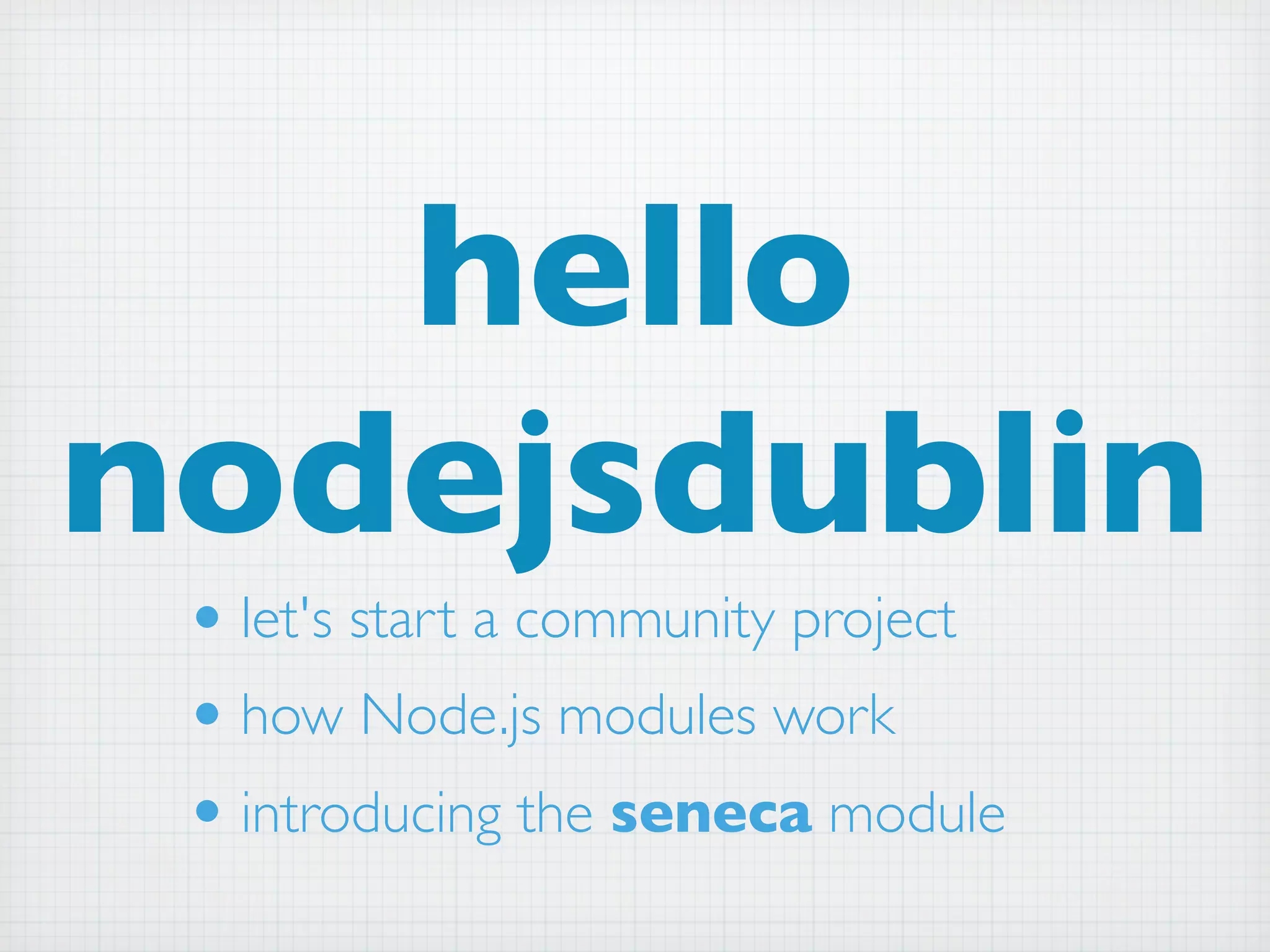
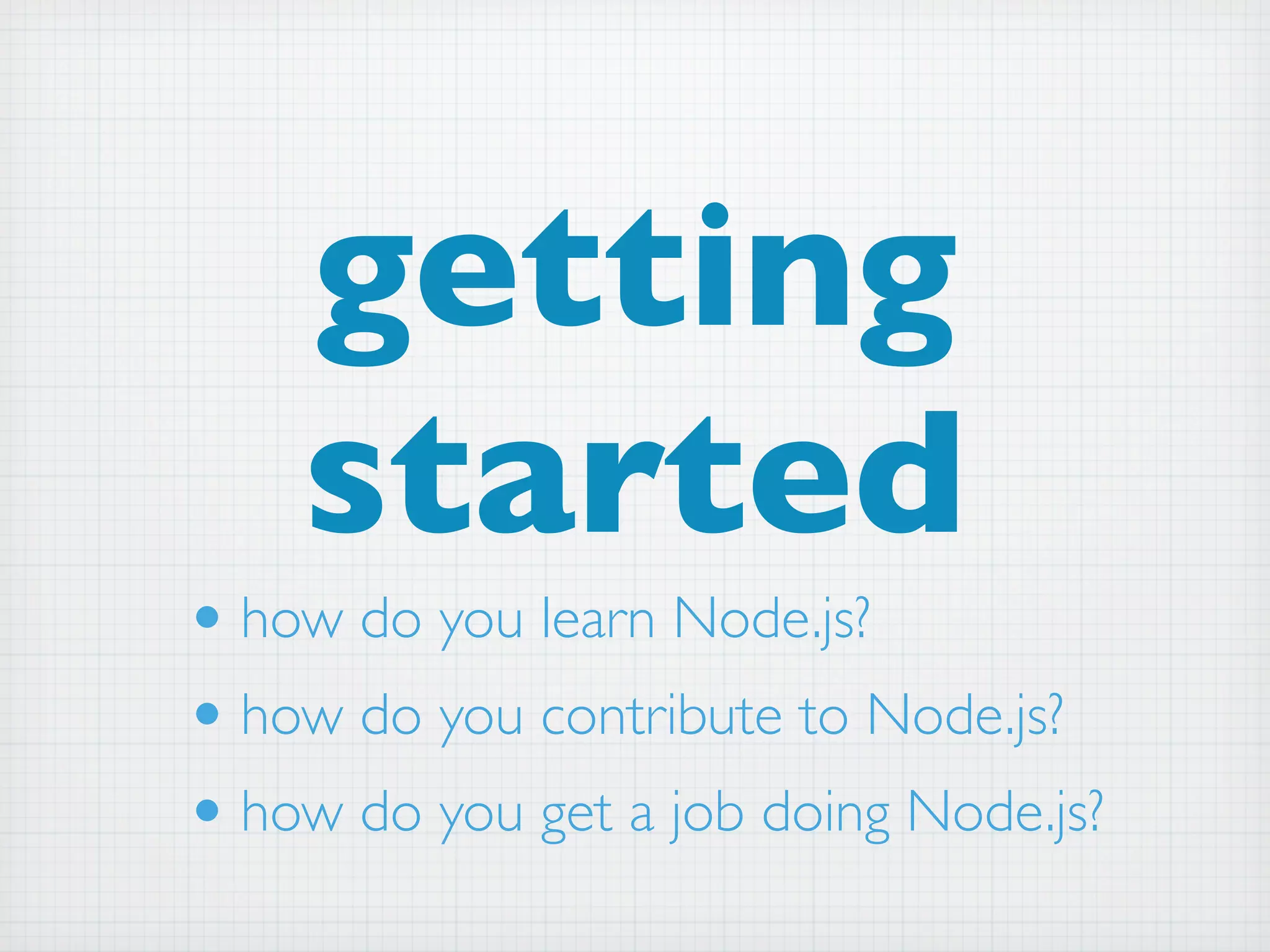

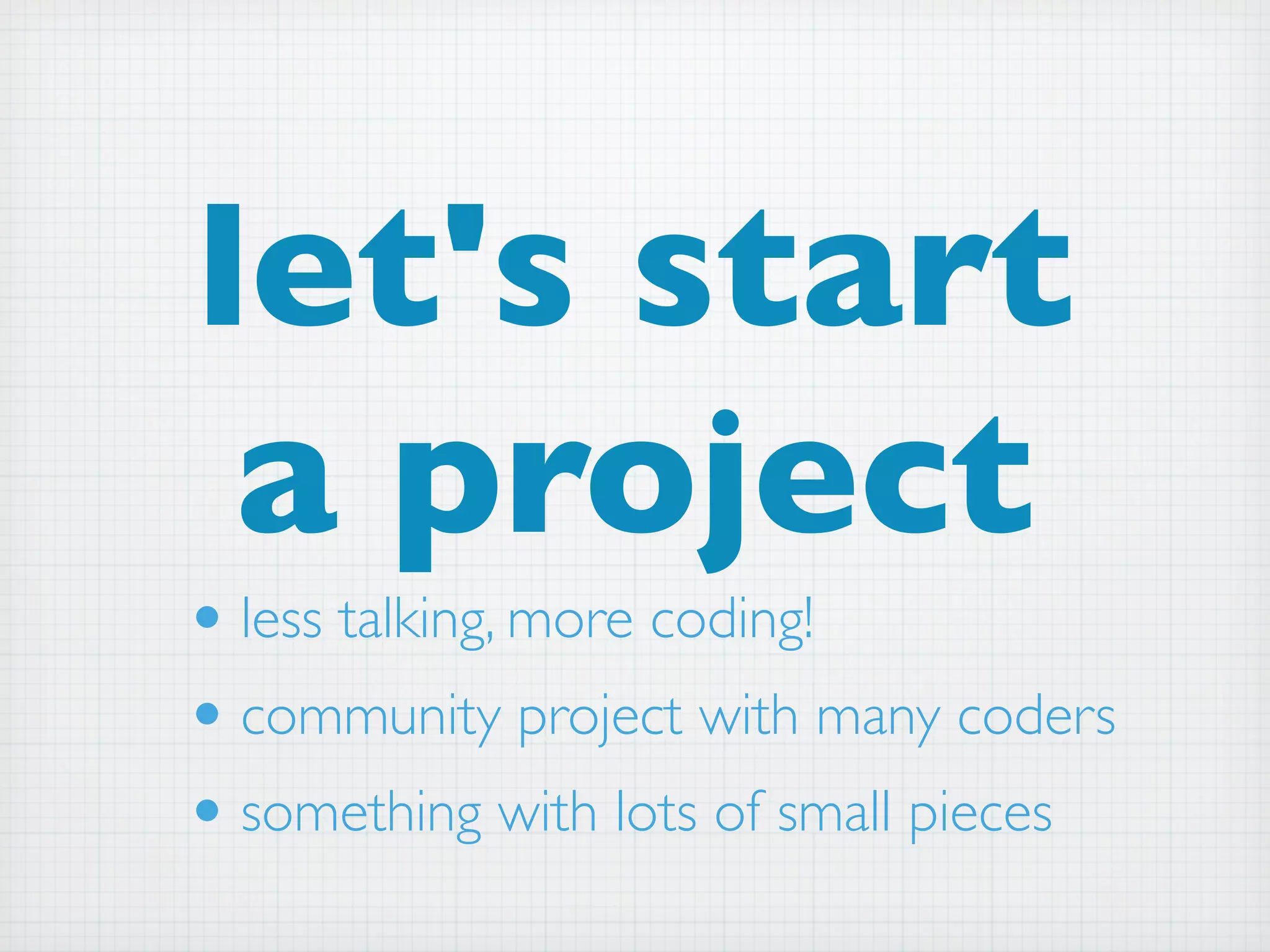
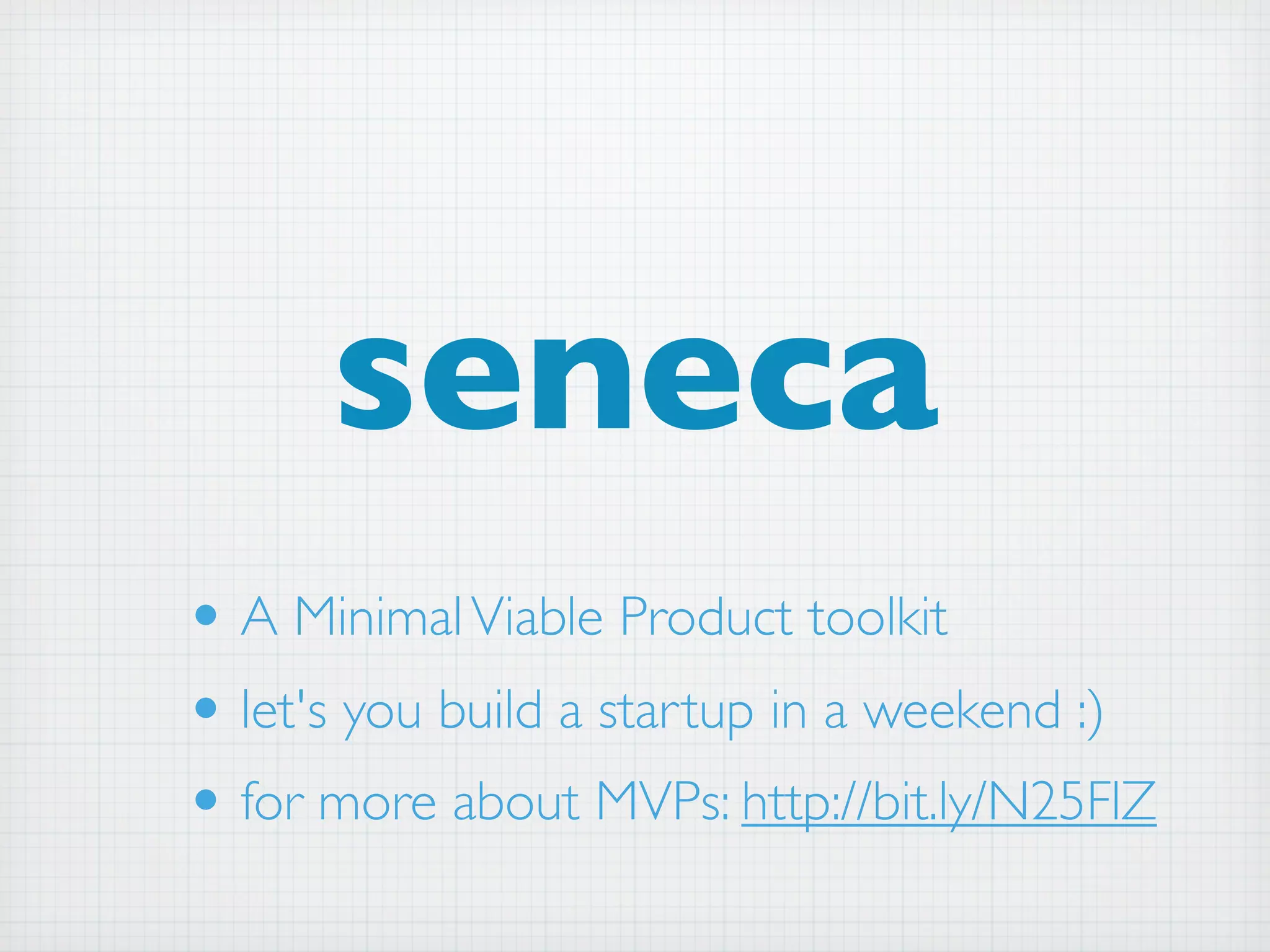
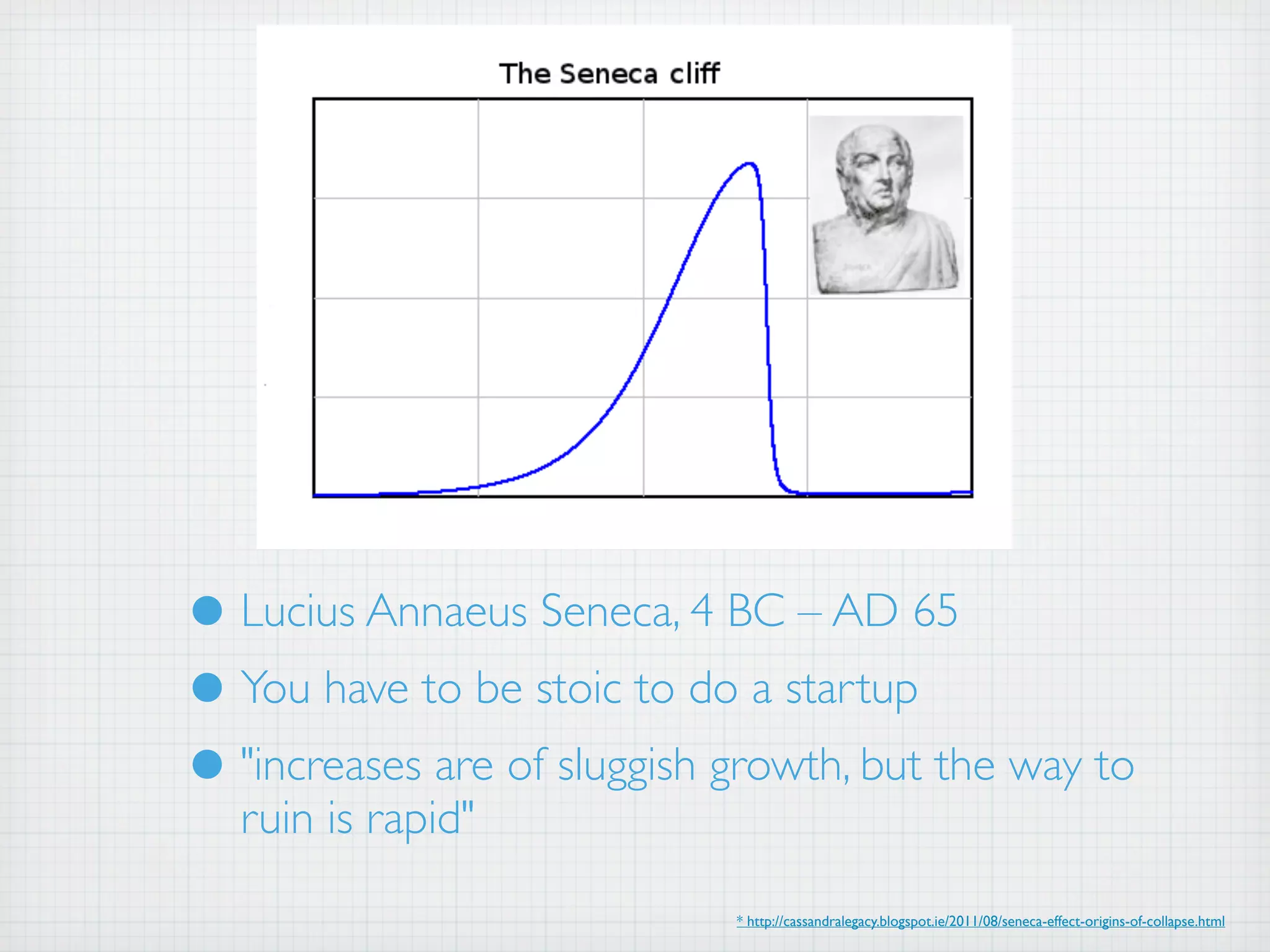

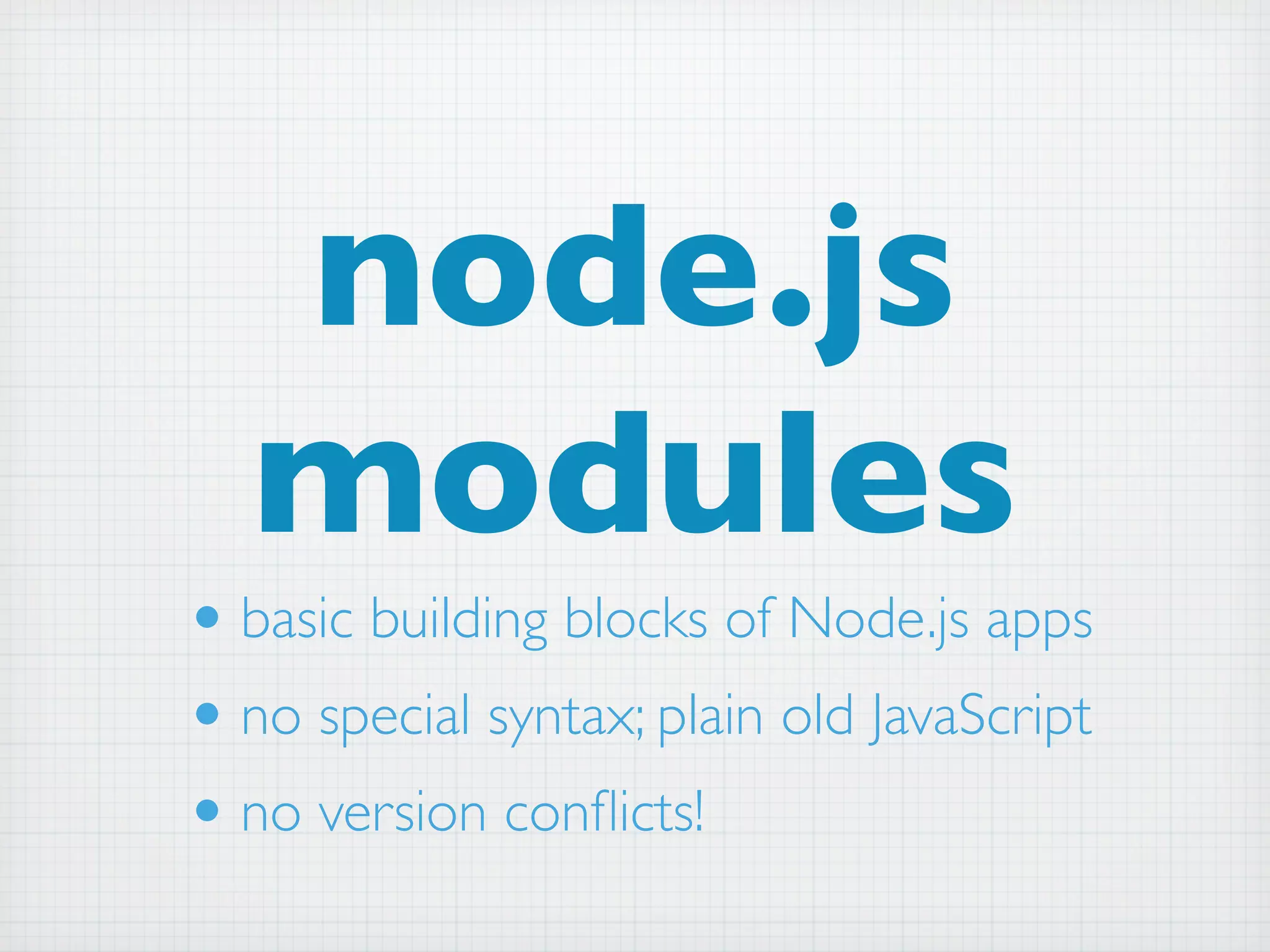
![using modules
var _ = require("underscore");
var threes = _.map([1, 2, 3], function(n){ return n*3 });
console.log( threes );
// prints [3, 6, 9]
var mongo = require('mongodb');
var host = 'localhost';
var port = 27017;
var db = new mongo.Db( 'mydatabase',
new mongo.Server(host, port, {}), {});
db.open(function(err, db) { ... }](https://image.slidesharecdn.com/20120816-nodejsdublin-120820050259-phpapp01/75/Introducing-the-Seneca-MVP-framework-for-Node-js-10-2048.jpg)
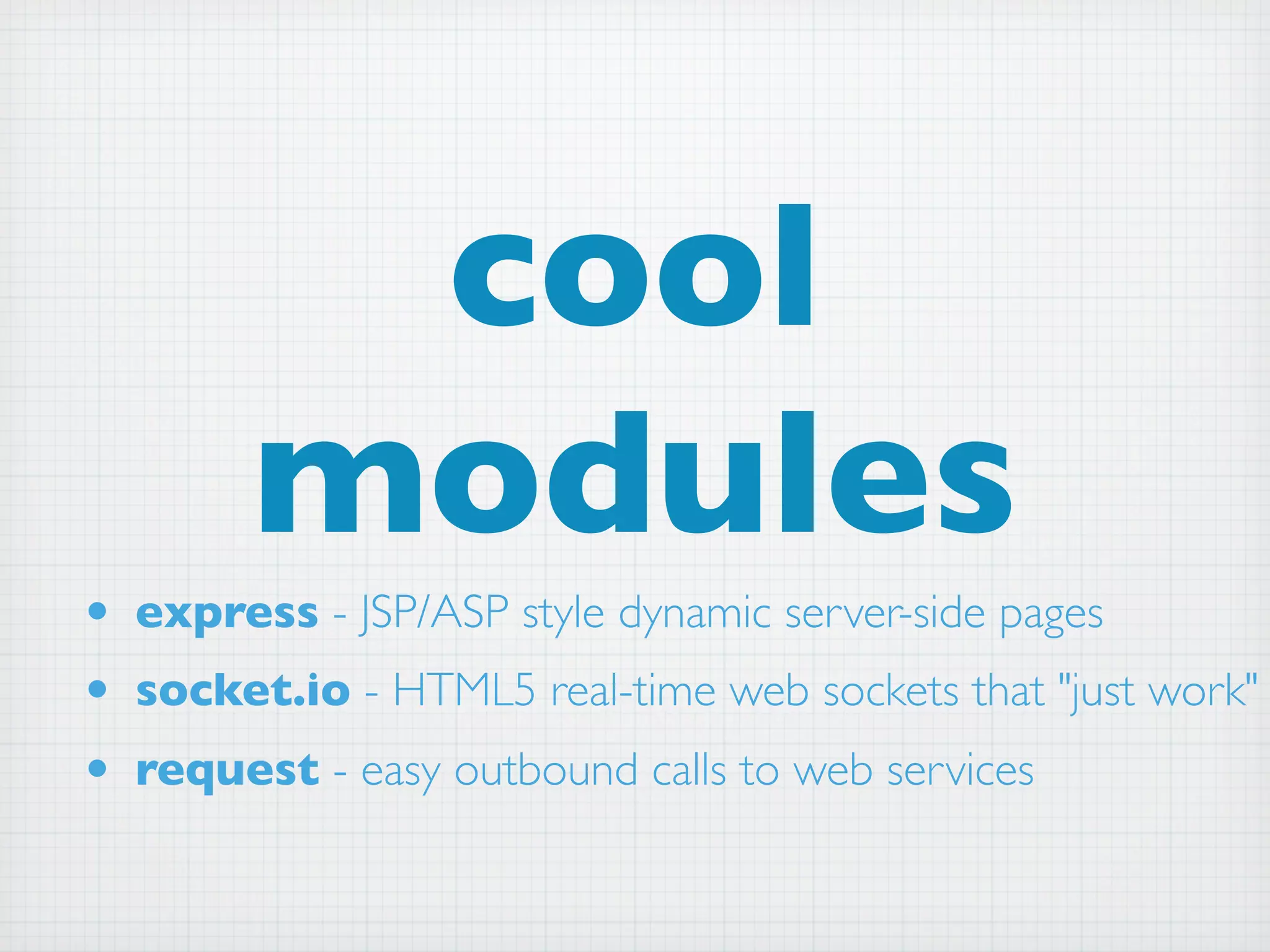
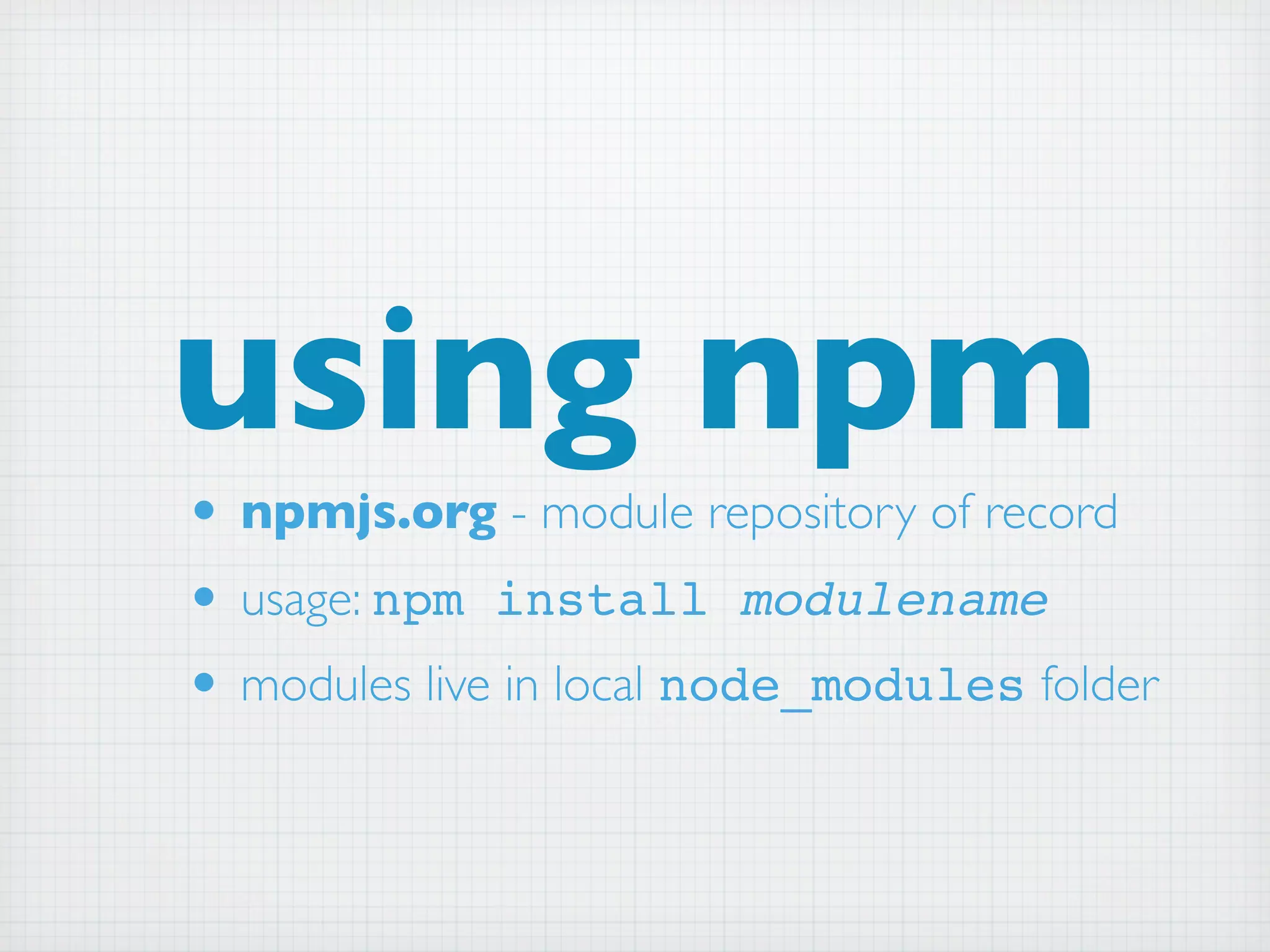
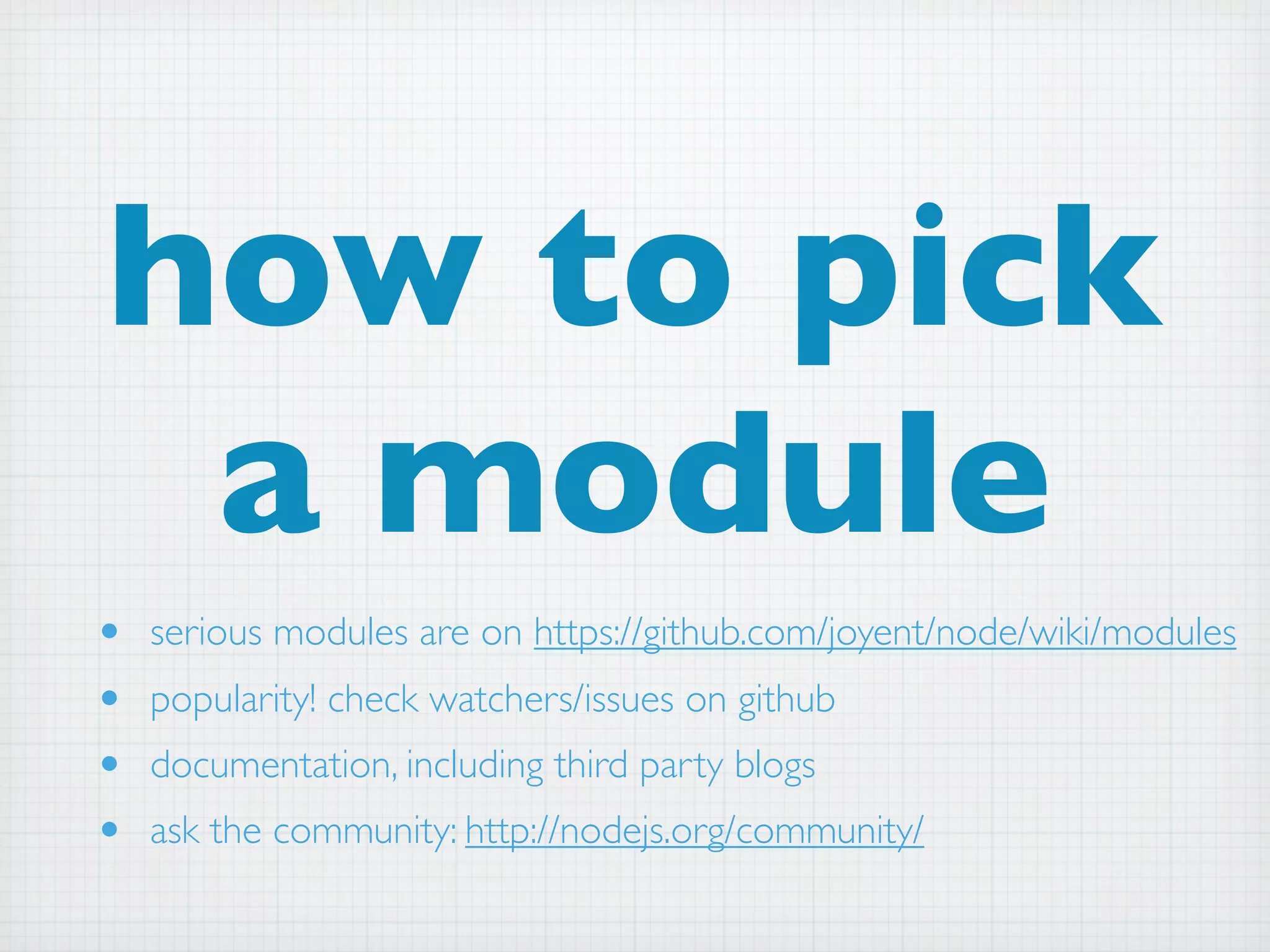
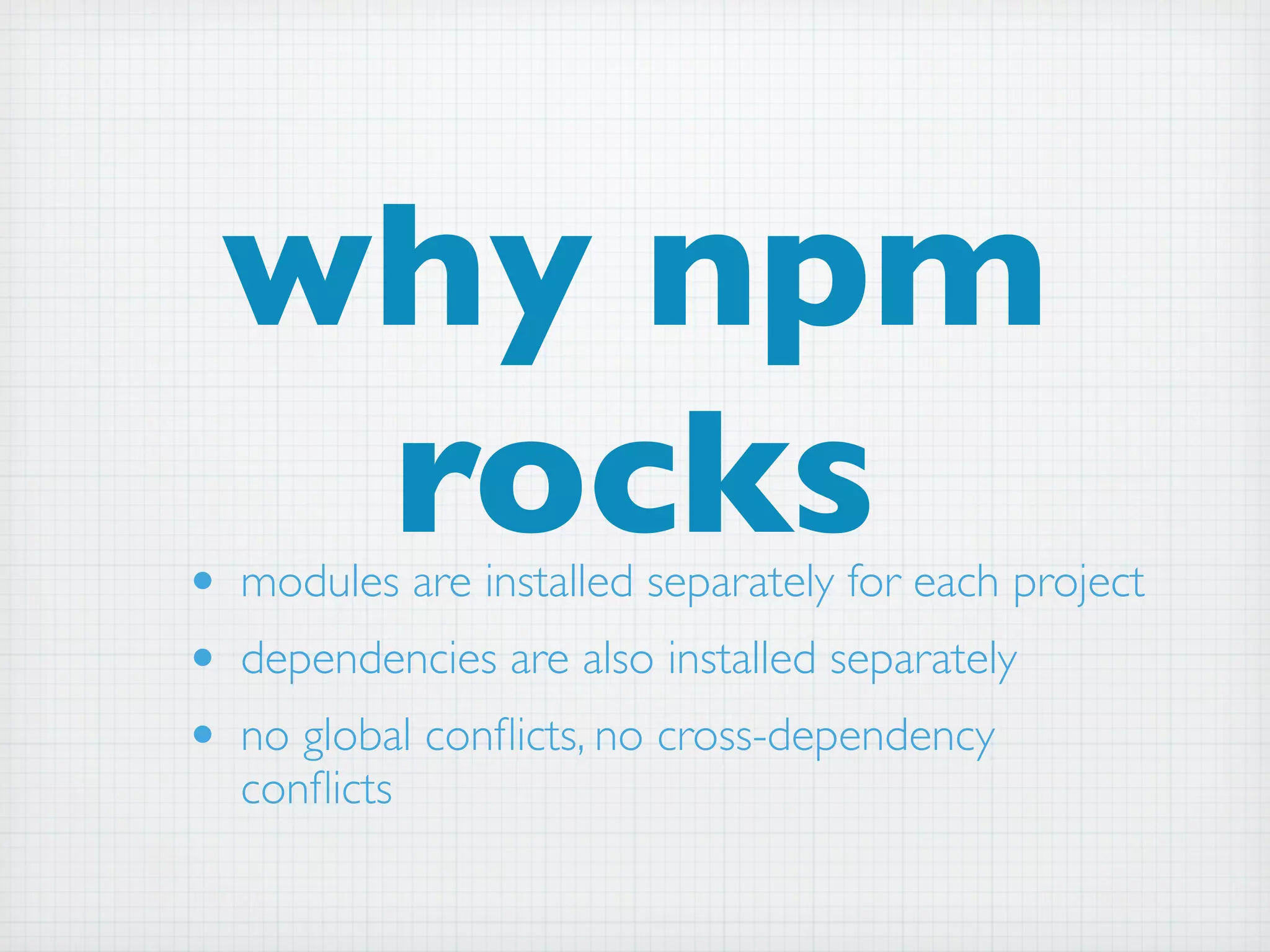
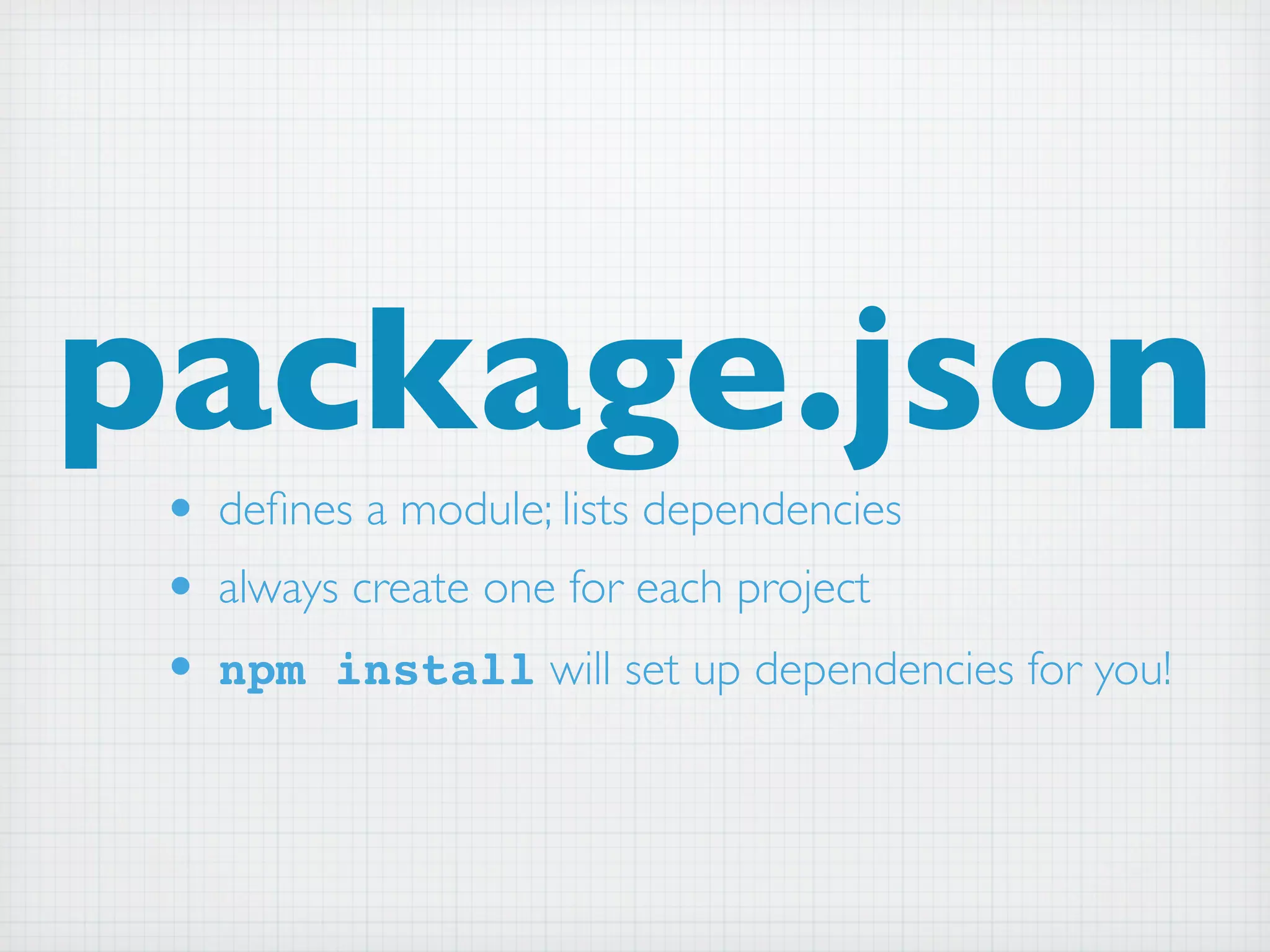
![package.json
{
"name" : "optimist",
"version" : "0.3.4",
"description" : "Light-weight option parsing.",
"main" : "./index.js",
"dependencies" : {
"wordwrap" : ">=0.0.2"
},
"repository" : {
"type" : "git",
"url" : "http://github.com/substack/node-optimist.git"
},
"keywords" : [ "argument", "args", "option", "parser" ]
"author" : { "name" : "James Halliday" },
"engine" : { "node" : ">=0.4 }
}](https://image.slidesharecdn.com/20120816-nodejsdublin-120820050259-phpapp01/75/Introducing-the-Seneca-MVP-framework-for-Node-js-16-2048.jpg)
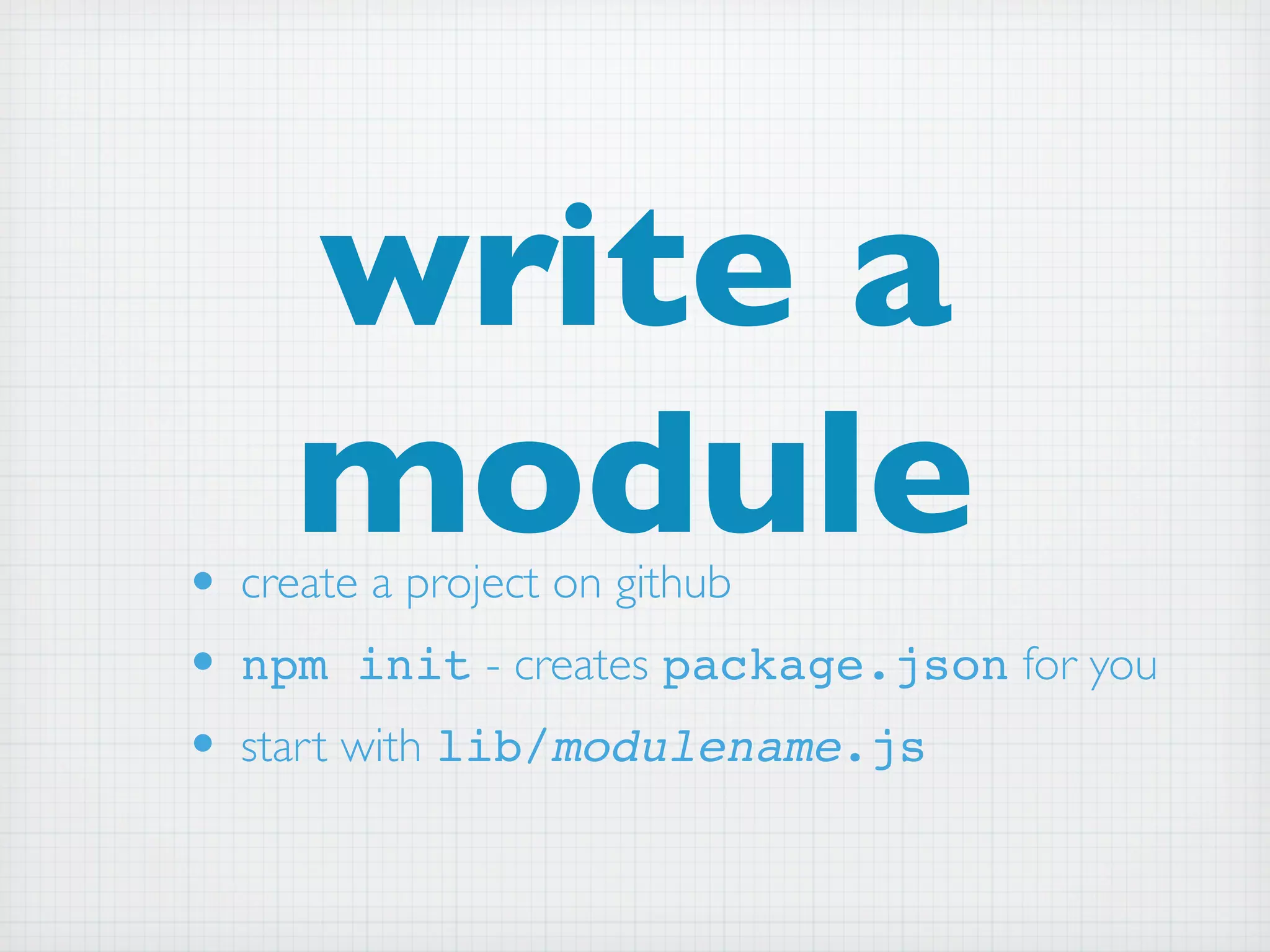
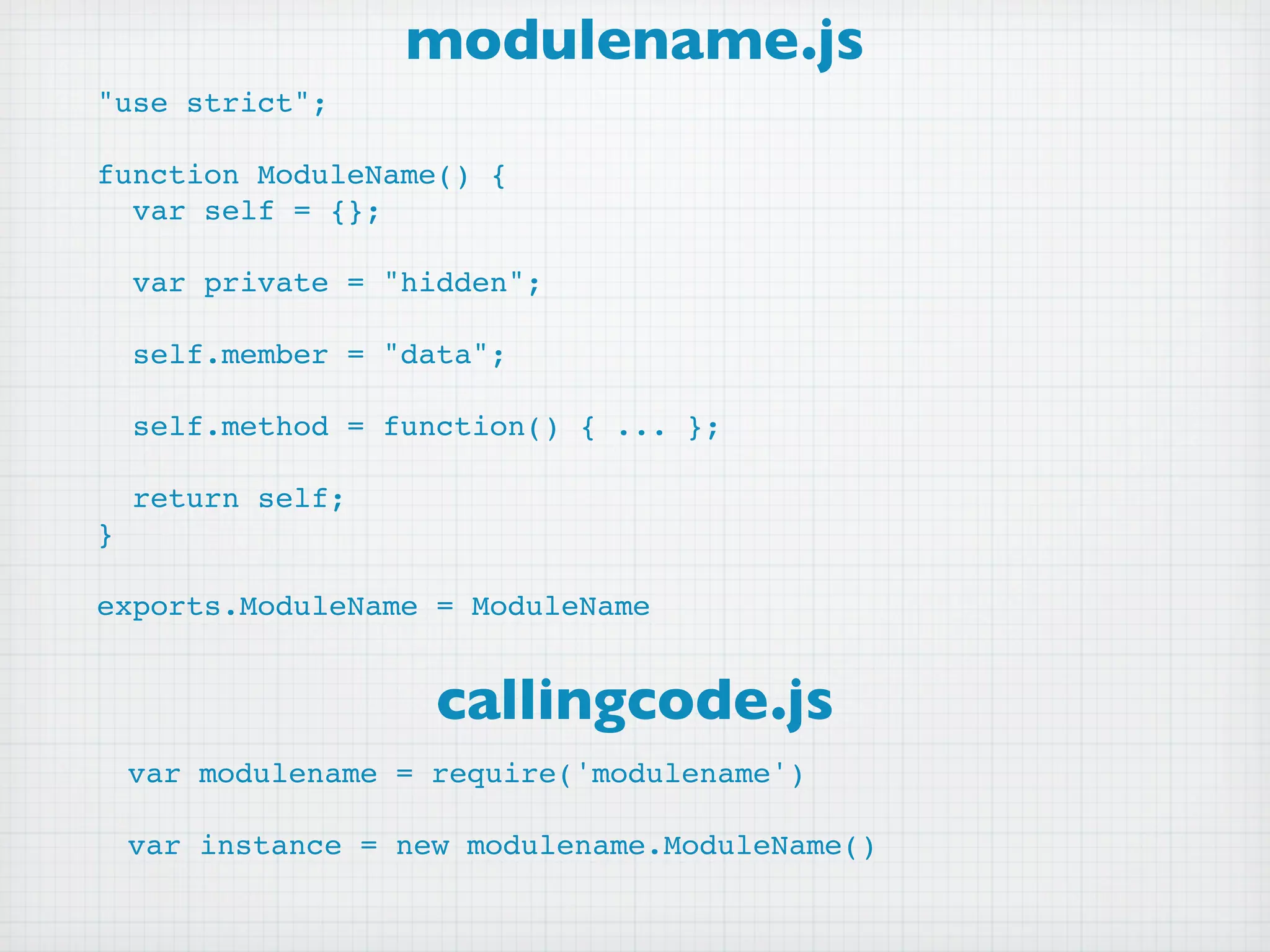
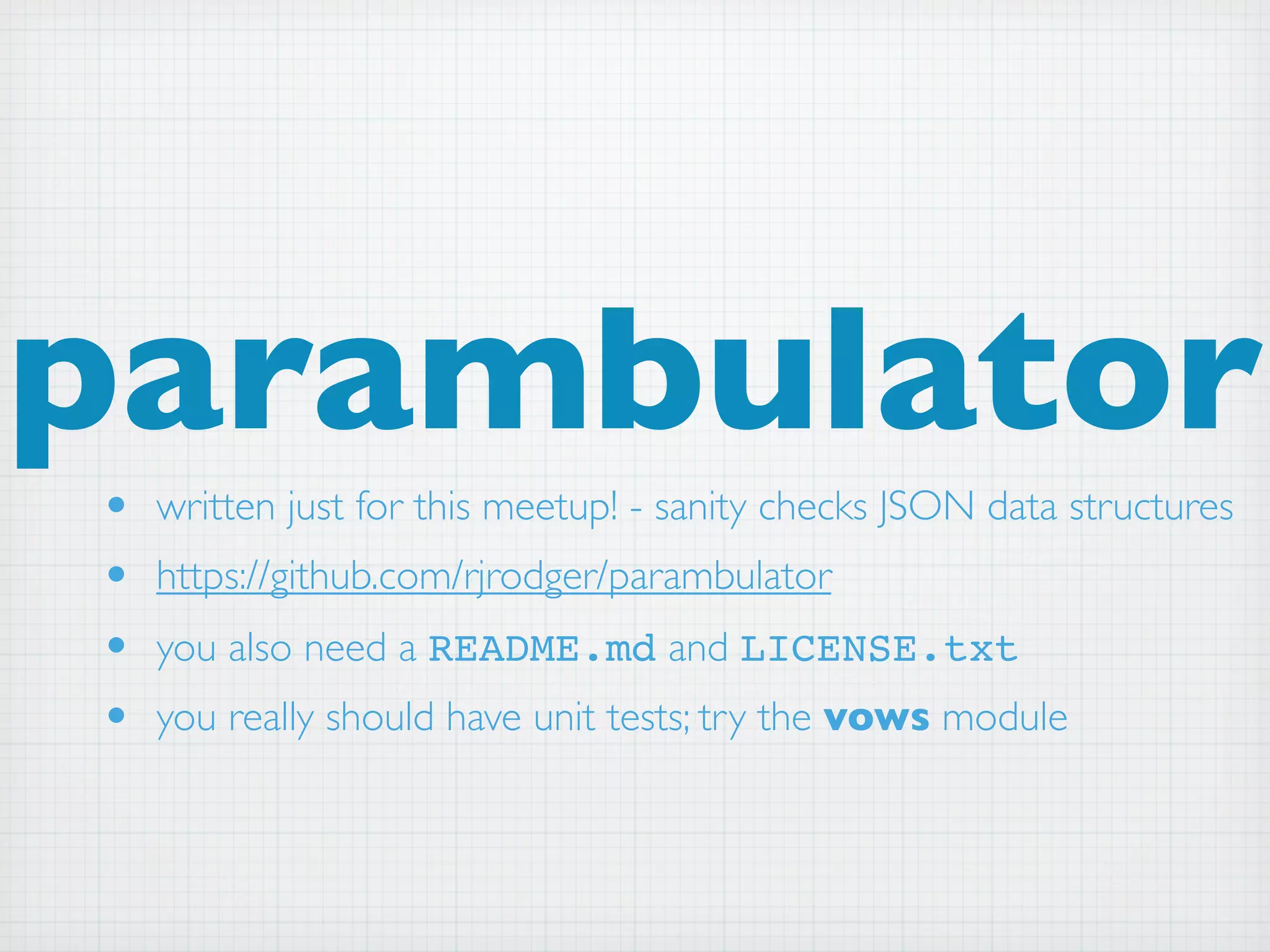
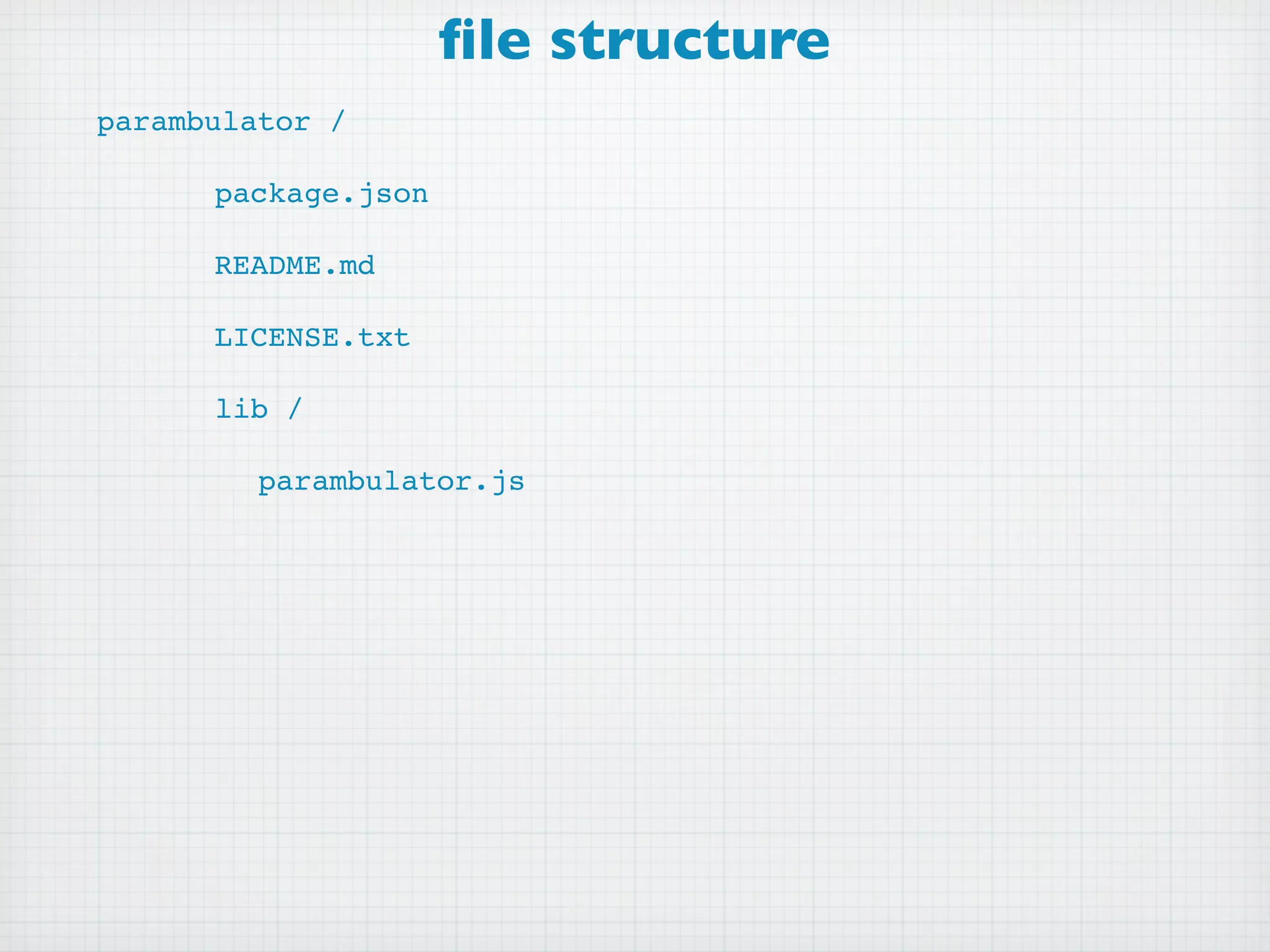
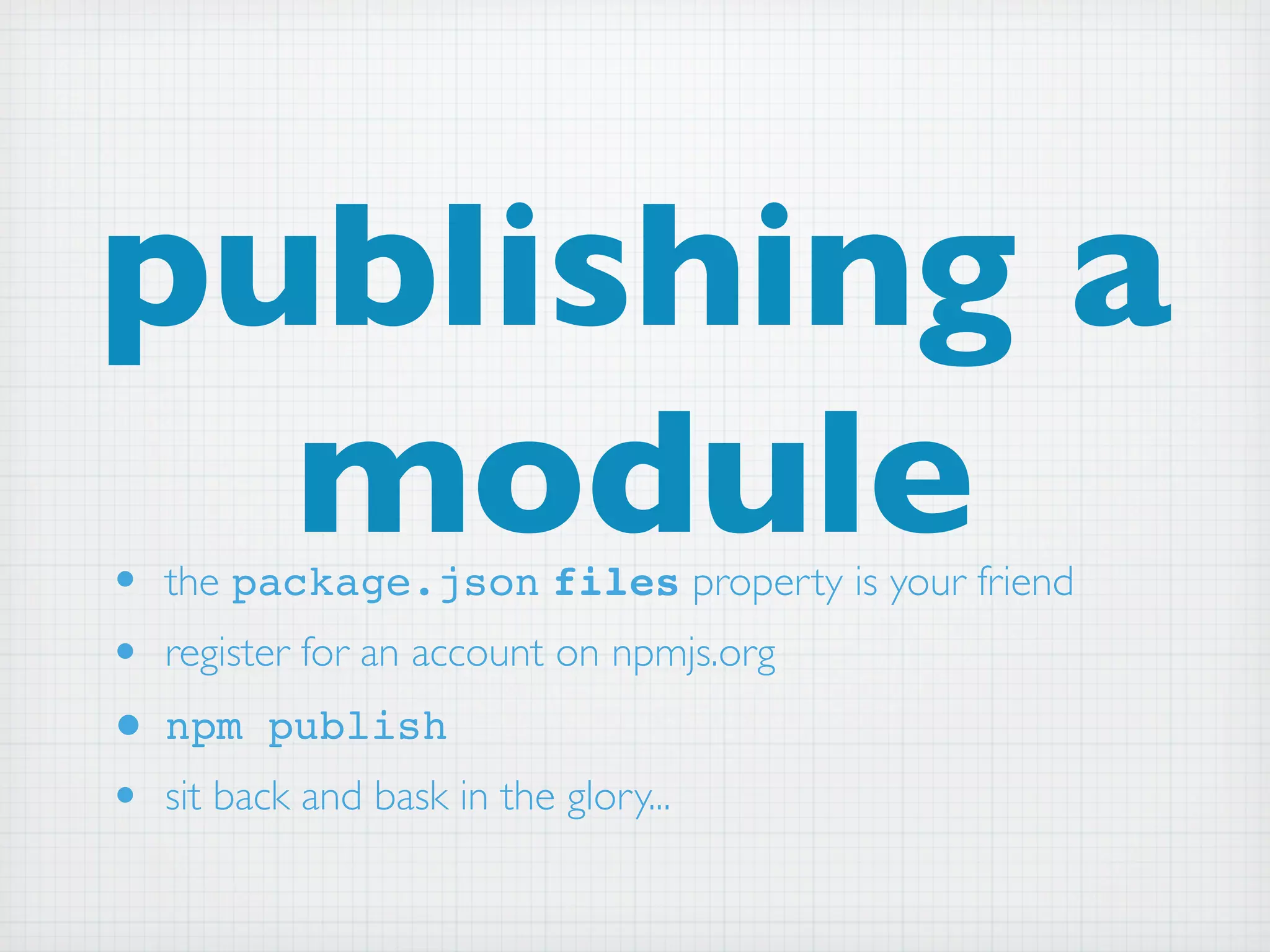
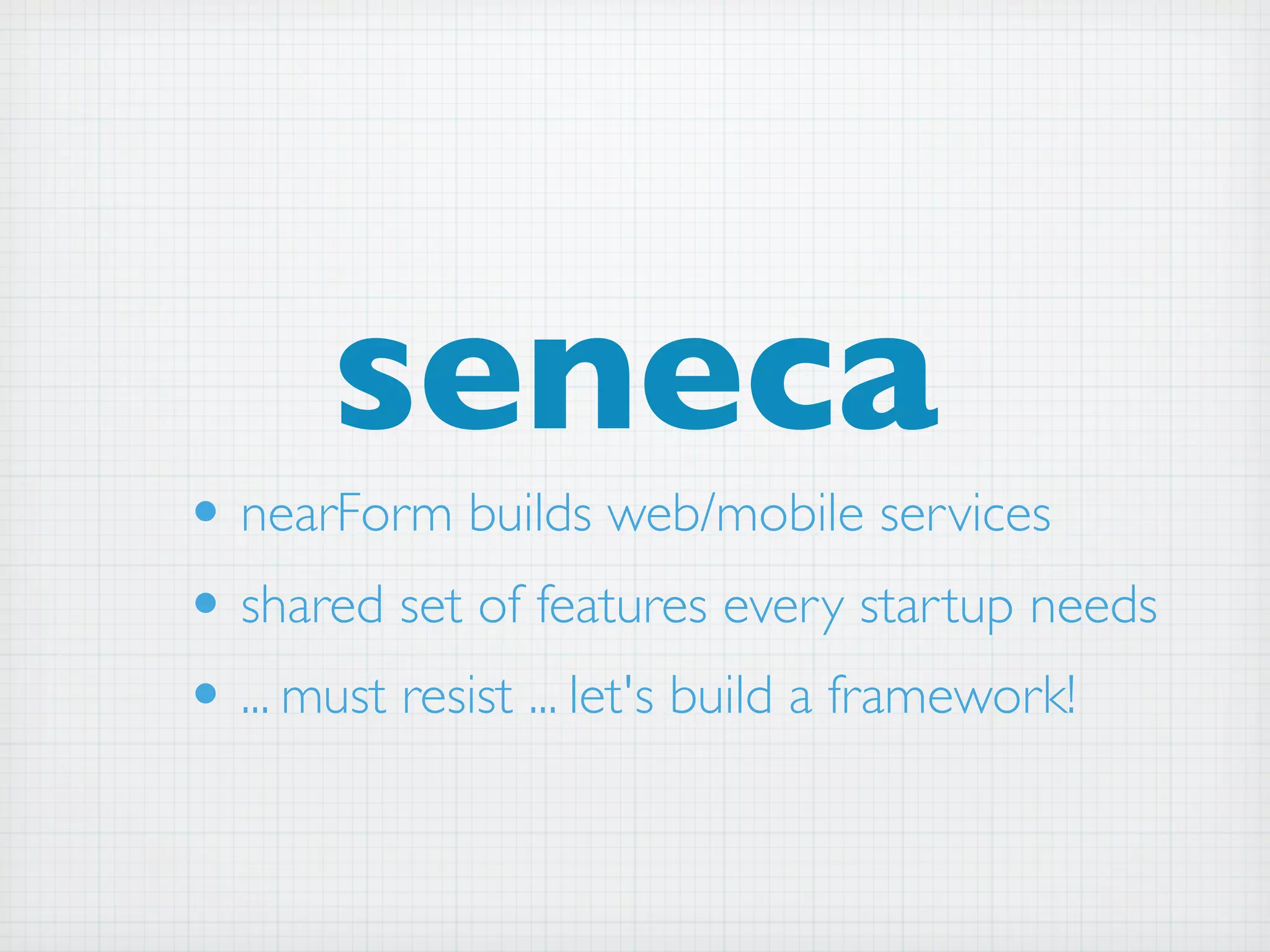


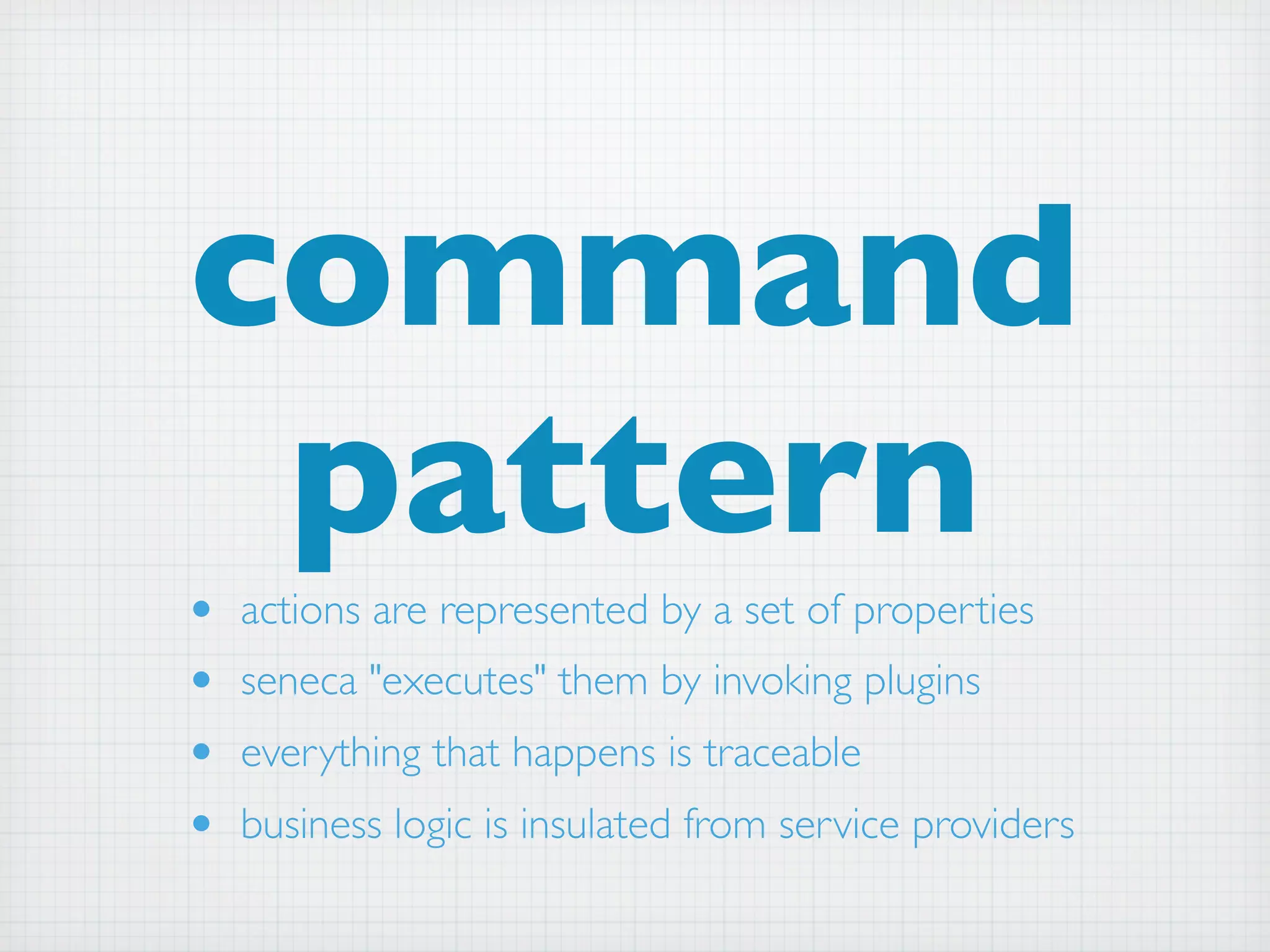
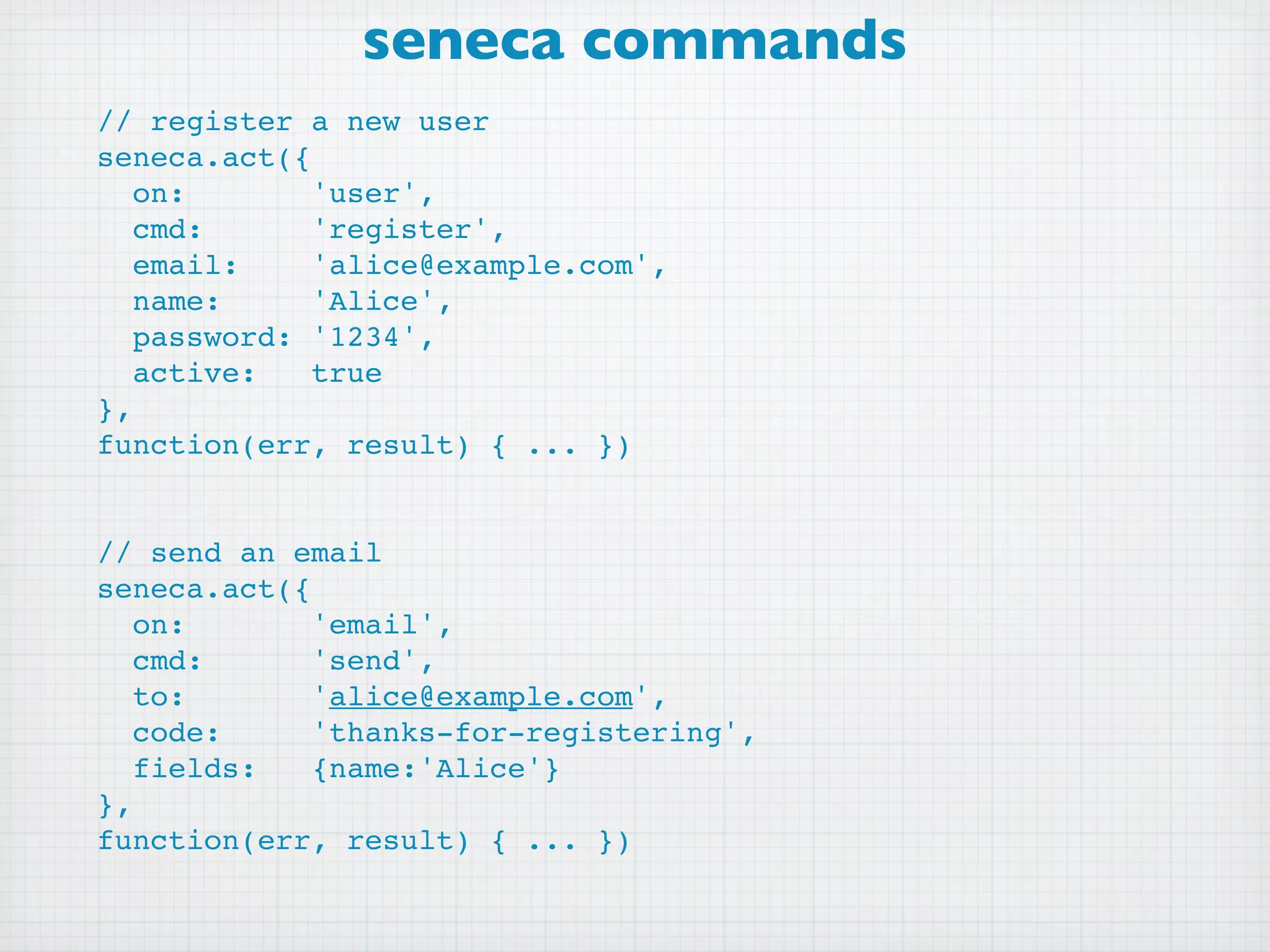
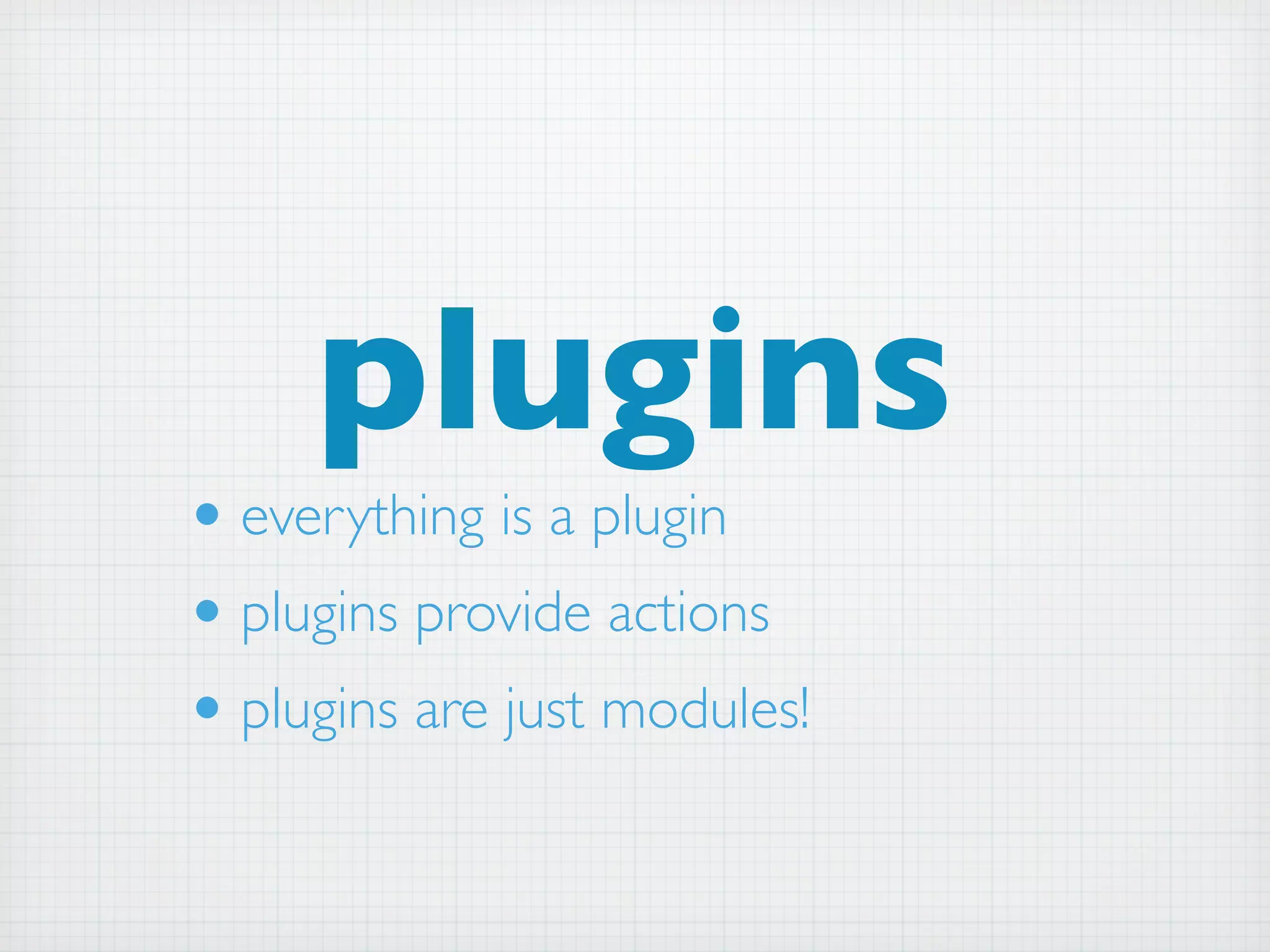
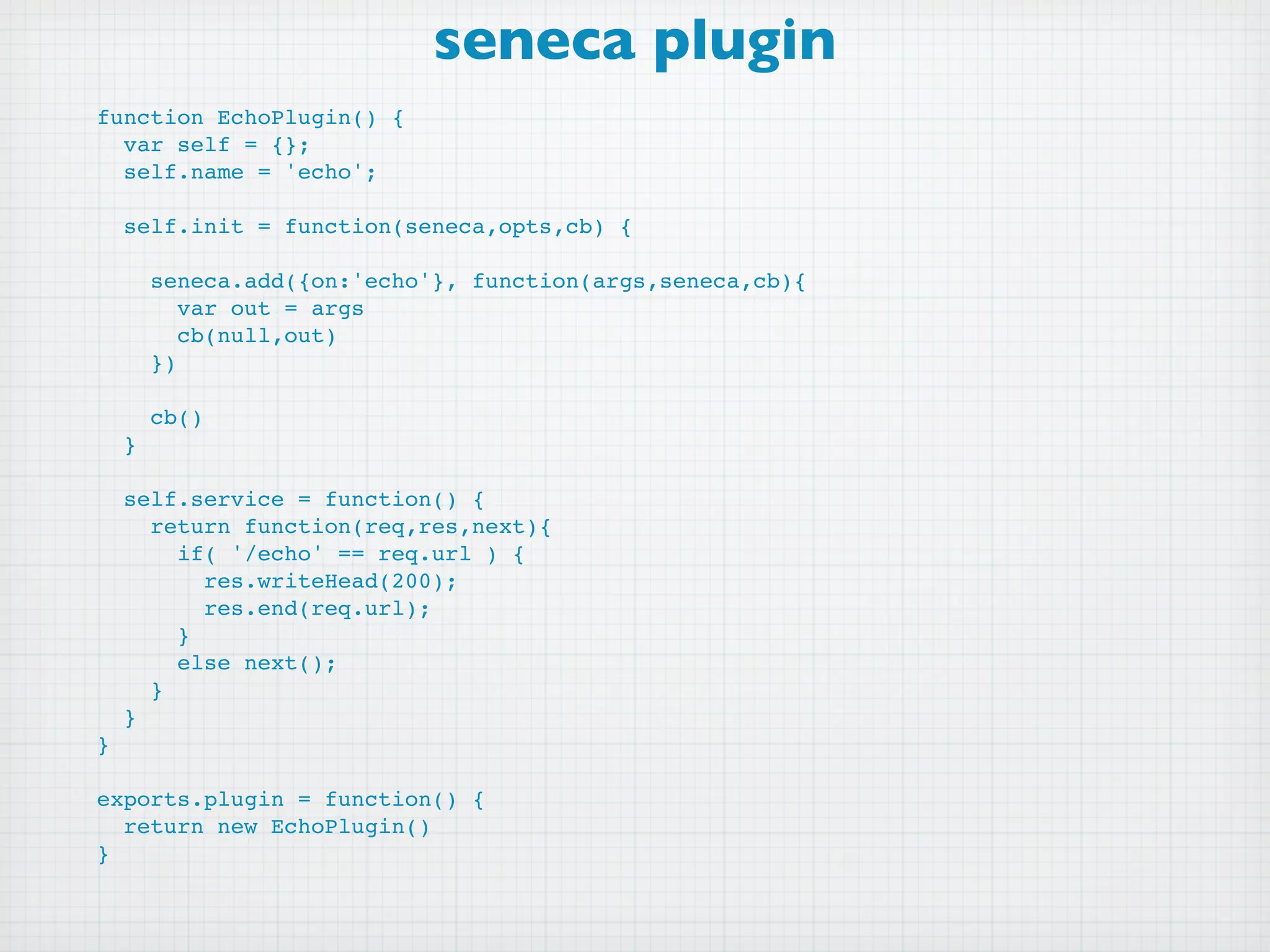
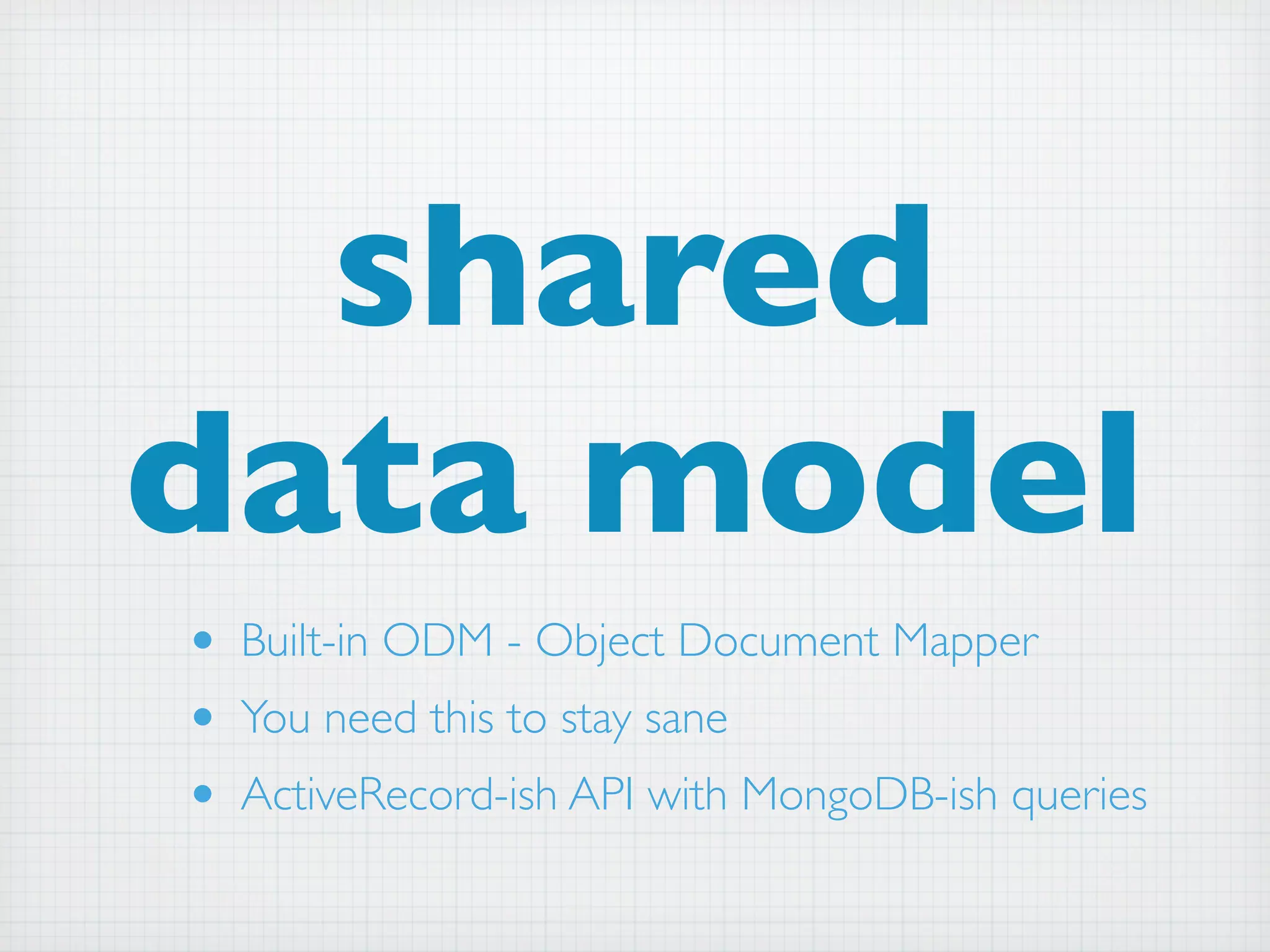
![seneca data model
var product = seneca.make('product');
product.name = 'Apple';
product.price = 1.99;
product.save$(function(err,savedproduct){
console.log('generated id: '+savedproduct.id);
})
product.load$('1234',function(err,foundproduct){
console.log('found product '+foundproduct);
})
product.list$( {price:1.99}, function(err,list){
for( var i = 0; i < list.length; i++ ) {
console.log( list[i] );
}
})](https://image.slidesharecdn.com/20120816-nodejsdublin-120820050259-phpapp01/75/Introducing-the-Seneca-MVP-framework-for-Node-js-30-2048.jpg)
